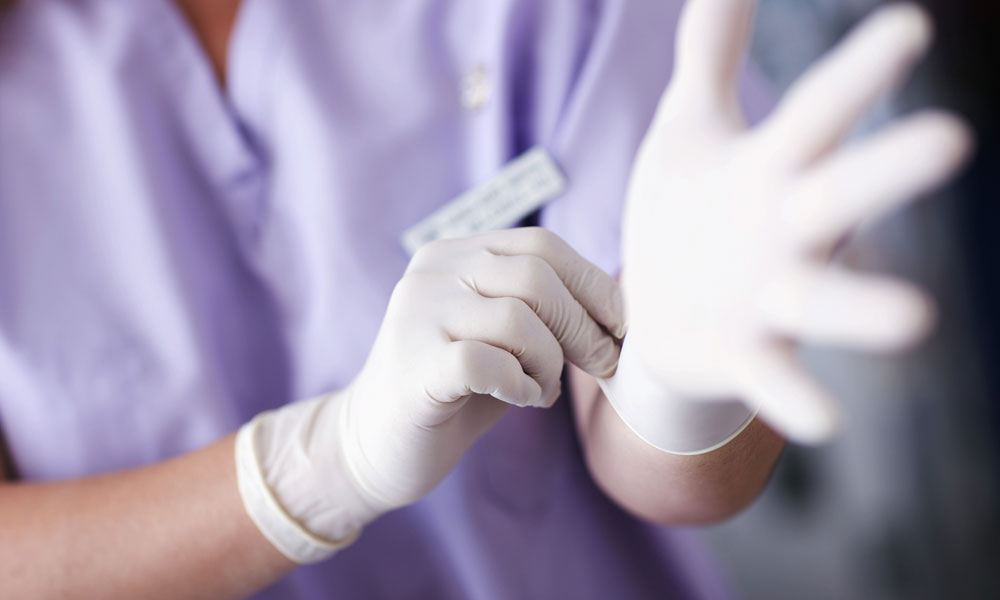
Nurses Groups Speak Out As Two of Their Own Contract Ebola
Two more confirmed cases of Ebola in the U.S.—both in nurses who cared for the Dallas patient who died last week—has nurses’ groups urging action to better prepare hospitals and healthcare workers to care for patients infected with the disease.
Are the doctors and nurses at U.S. hospitals adequately prepared to properly care for Ebola-infected patients? It’s a fair question to ask after confirmation this week that two nurses had contracted the disease after caring for Thomas Duncan—the Liberian man who died of the virus in Dallas last week. And it’s also one that nurses themselves are starting to ask.
We have to continue to sound the alarm. There is the potential for many more Dallases if hospitals are not mandated and do not commit to more vigorous standards.
According to a survey of 1,900 nurses by National Nurses United (NNU), the largest professional association of registered nurses in the U.S., 80 percent said they have not received sufficient training on Ebola. That narrative was upheld on Tuesday when a top official from the Centers for Disease Control (CDC) told reporters that the staff at Texas Health Presbyterian Hospital, where Duncan was treated, had to learn on the fly the protocol for how to control the disease.
Also of note, 36 percent of the nurses surveyed said their hospitals don’t have the right supplies—including face shields and fluid-resistant gowns—to care for an Ebola patient, and 76 percent reported that their hospitals don’t have adequate policies on how to deal with patients who might be infected with the disease.
“We are seeing that hospitals are not prepared,” Bonnie Castillo, director of NNU’s Registered Nurse Response Network, told the Washington Post. “They are not doing active drilling and education they need to be doing.”
She said most nurses NNU surveyed reported that they received only a single page of information about Ebola, which referred them to a website for more information. “That is woefully insufficient,” Castillo said. “We have to continue to sound the alarm. There is the potential for many more Dallases if hospitals are not mandated and do not commit to more vigorous standards. We see potential gaping holes for this to spread.”
After confirming that 26-year-old nurse Nina Pham represents the second case of Ebola in the U.S. on Sunday, CDC Director Thomas Frieden said on Monday that substantial changes to national protocols were in the works. “We have to rethink the way we address Ebola infection control, because even a single infection is unacceptable,” he said, according to the Post.
In the meantime, the Texas Nurses Association announced this week that it is collaborating with the Emergency Nurses Association to provide nurses with the tools they need to identify and care for patients, along with reminders about safety precautions that should be taken when securing, removing, and disposing of personal protection equipment.
“The facts are not known about how the nurse in Dallas was exposed. It is incorrect to assume that the nurse failed to follow protocols,” the group said in a statement. “Nurses work collaboratively within a complex healthcare environment. Just like in the case of Mr. Duncan, it is critical that we approach these cases objectively and learn from a full account of what happened. Only this way will nurses and all healthcare workers be equipped to safely care for patients and themselves.”
In August, as the Ebola scare crept into national headlines, NNU called for greater transparency and strict adherence to CDC’s protocols among hospitals and health agencies.
“This potential exposure of patients and healthcare workers demonstrates the critical need for planning, preparedness, and protection at the highest level in hospitals throughout the nation,” NNU’s Castillo said at the time.
(Fuse/Thinkstock)






Comments